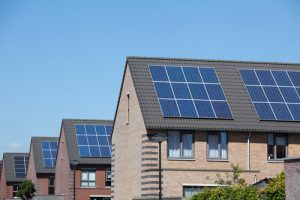
U.S. Sen. Susan Collins (R-ME) is the lead original cosponsor of the newly introduced bipartisan Investing in State Energy Act.
S. 185 would require certain financial assistance under the State Energy Program (SEP) and the Weatherization Assistance Program (WAP) to be promptly distributed to support state and local high-impact energy efficiency and renewable energy initiatives, according to the congressional record summary.
“The Weatherization Assistance Program and the State Energy Program are cost-effective ways to reduce energy usage and cut low-income homeowners’ energy bills permanently,” Sen. Collins said on Monday. “Our bipartisan bill would ensure that this important funding is distributed promptly to state agencies and local partners that implement these programs.”
The U.S. Department of Energy’s (DOE) assistance programs, WAP and SEP, have provided technical and financial assistance to states, tribal governments and U.S. territories to encourage the adoption of clean energy and energy efficiency practices and technologies for more than 40 years, according to a one-page summary of S. 185 provided by the senators.
WAP enables low-income families, seniors, veterans and individuals with disabilities to improve the energy efficiency of their homes, while the SEP provides cost-shared resources directly to states for allocations by the governor-designated State Energy Office to support energy projects, such as energy emergency planning and response, private-sector innovation in clean energy, and state-driven energy infrastructure modernization, according to the summary.
S. 185, sponsored on Jan. 17 by U.S. Sen. Jeanne Shaheen (D-NH), would direct the DOE to distribute the full annual award amount of WAP and SEP funds to states, tribes and other direct grantees no later than 60 days after funds are appropriated by Congress, according to the senators.
“By establishing mandatory deadlines to issue these funds, this legislation encourages local high-impact projects that serve families in need and ensures that states continue to receive critical resources to meet their energy goals,” according to their summary.
Sen. Collins pointed out that “access to affordable home energy during the cold winter months is a matter of health and safety for many low-income households — particularly for children and seniors — in Maine and across the country,” requiring prompt distribution of these funds on a regular basis.
S. 185 is supported by several organizations, including the National Association of State Energy Officials, the Natural Resources Defense Council, the National Consumer Law Center, and the National Community Action Foundation.
S. 185 has been referred for consideration to the U.S. Senate Energy and Natural Resources Committee.



